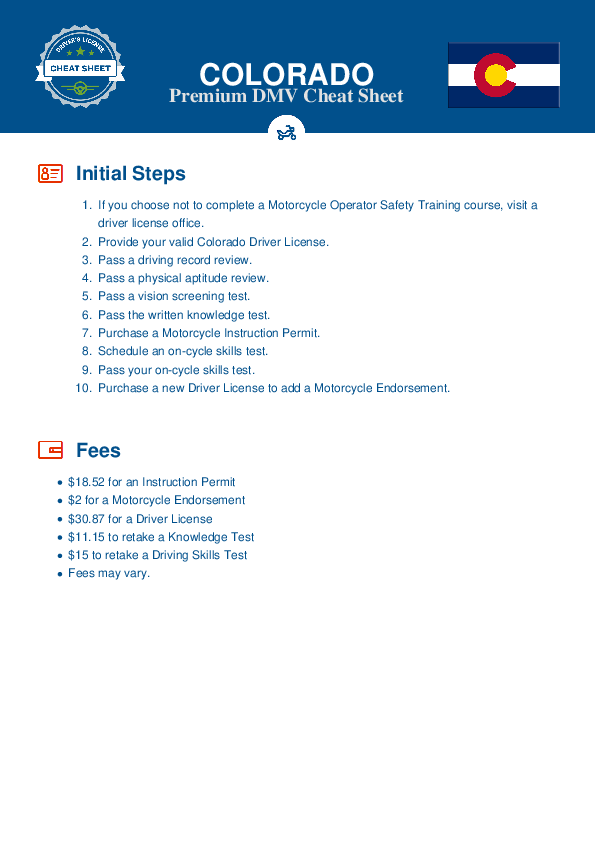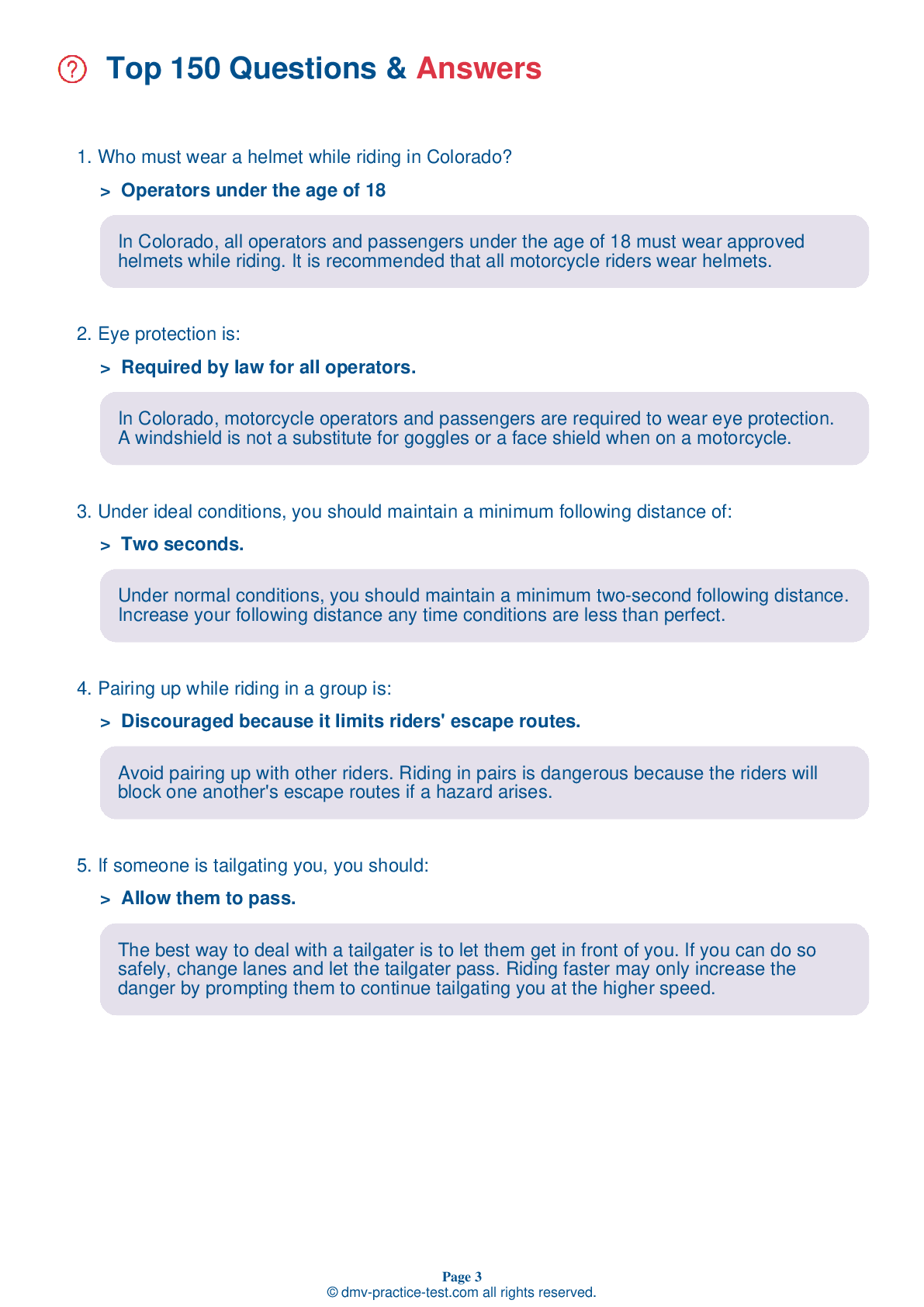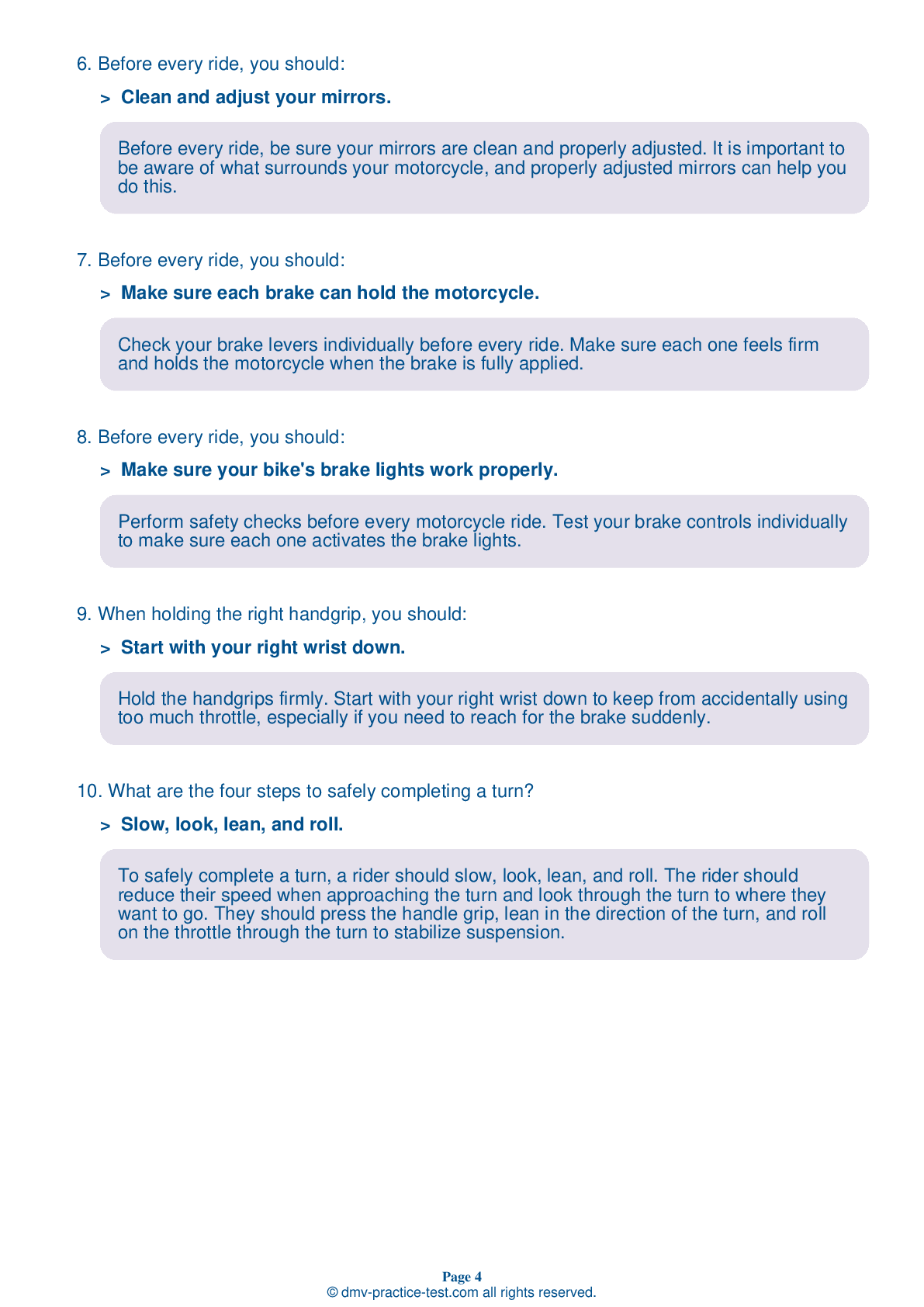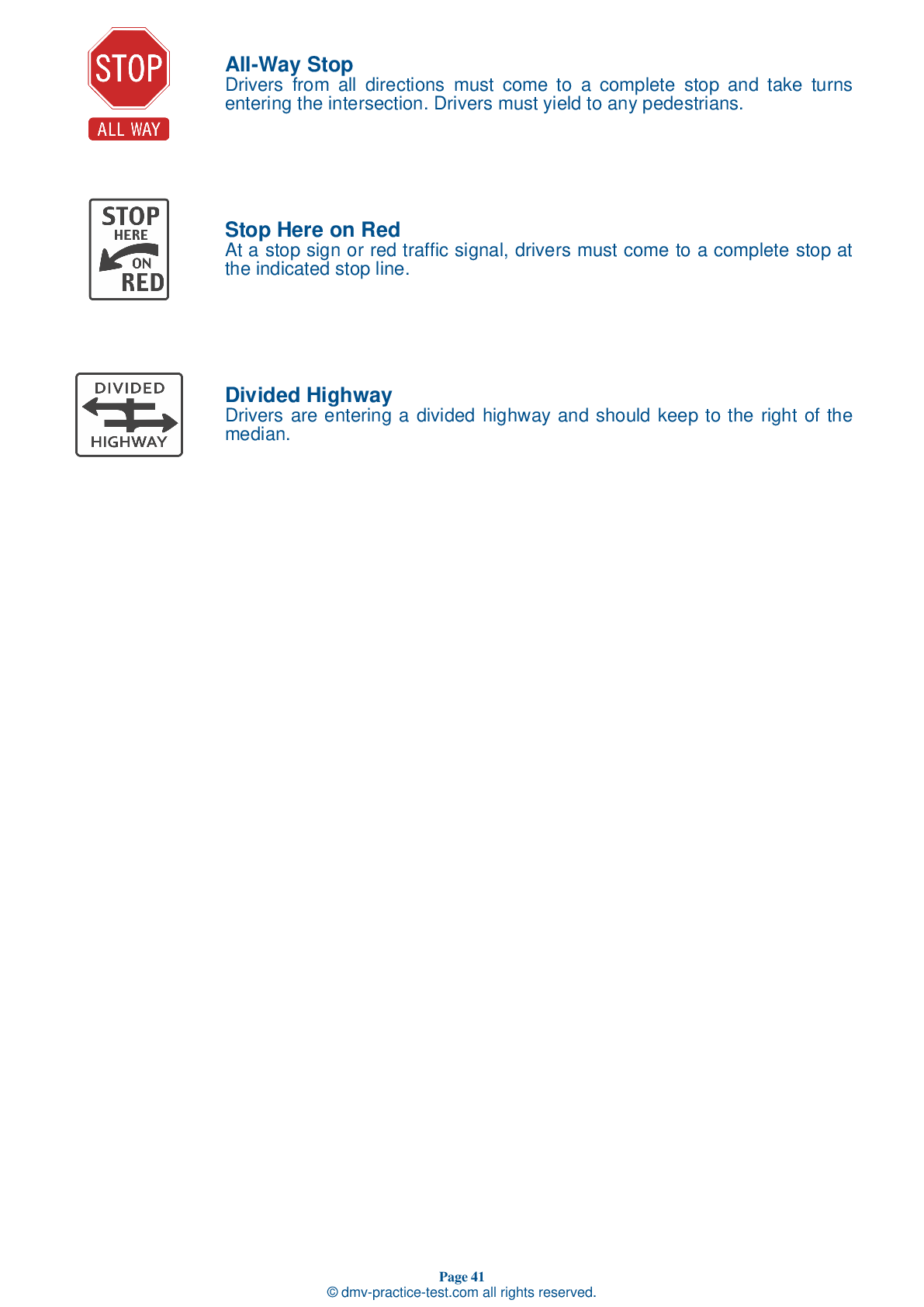Motorcycle Test | License CO 2026 | FREE Online Practice! #15 Page 4 of 4
Take this FREE motorcycle test (license in CO 2026) to check your knowledge of the road rules. To improve your results, download a motorcycle handbook online, study theory, and practice for free on our website. Still worried about how to get a motorcycle license in Colorado in 2026? Check our website for more sample tests, train as much as possible, and boost your grades!
19 . When riding a motorcycle, a jacket should be worn:
For your protection, you should always wear a long-sleeved jacket when riding, even in warm weather when you may not think you need a jacket. It can help protect you against the sun and dehydration in hot weather.
20 . Increase your following distance if:
Open up your following distance if your motorcycle will require a longer distance than normal to stop. Additionally, if you are riding in heavy traffic or if you cannot see through the vehicle in front of you, you should also increase your following distance.
21 . How does the stopping distance for motorcycles compare to the stopping distance for cars?
Under normal conditions, the stopping distances for motorcycles is nearly the same as it is for cars. However, slippery pavement makes quick stops especially difficult for motorcycle operators.
22 . Before every ride, you should:
Before every ride, be sure your mirrors are clean and properly adjusted. It is important to be aware of what surrounds your motorcycle, and properly adjusted mirrors can help you do this.
23 . This road sign means:
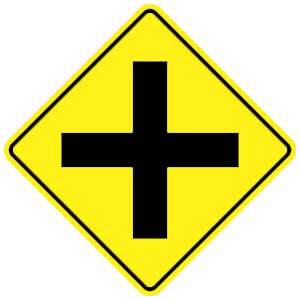
This sign means that you are approaching an upcoming intersection. Watch carefully for cross traffic.
24 . When braking, you should:
Use both brakes every time you slow or stop, regardless of the condition of the road.
25 . Experienced riders use the acronym "SIPDE" as a way to stay aware of conditions around them. What does the "D" stand for in "SIPDE?"
SIPDE is a five-step process that experienced riders use to make judgements and take action while traveling. The letters in SIPDE stand for Scan, Identify, Predict, Decide, and Execute.
See the exact questions that will be on the 2026 Colorado DMV exam.
99.2% of people who use the cheat sheet pass the FIRST TIME
Jeneen was tired of paying $5/gallon. She got herself a scooter that required the motorcycle license. She studyed the motorcycle test cheat sheet and passed her test the next day!
Christopher tells us how he knew nothing prior to obtaining the motorcycle study guide, and he only got one question wrong because he clicked on the wrong answer by mistake.
